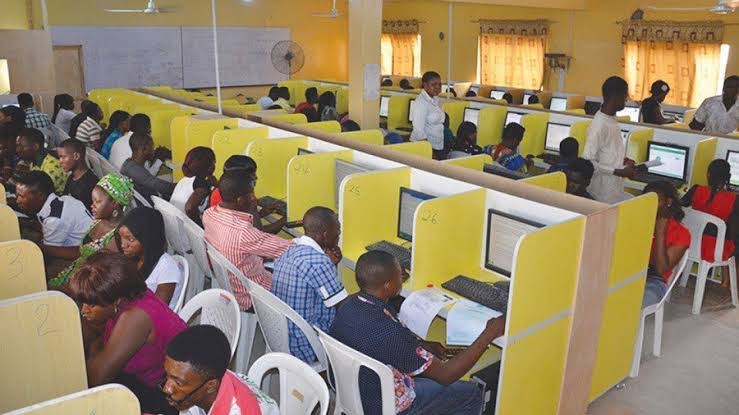In a decisive policy shift, the Federal Government has set 16 years as the minimum age for admission into Nigeria’s tertiary institutions. Announced on July 8, 2025, during the Joint Admissions and Matriculation Board (JAMB) policy meeting in Abuja, the move aims to standardise admission practices, reinforce academic maturity, and close loopholes that have long compromised the integrity of the system
Table of Contents
Key Points at a Glance
- New age requirement: 16 years old, effective from the 2025/2026 academic cycle.
- Non-negotiable policy: Strict compliance with no exceptions unless proven via rigorous documentation.
- CAPS enforcement: All admissions must go through the Central Admission Processing System; noncompliance will attract legal action.
- Balancing maturity and proficiency: The age aligns cognitive development with academic readiness, paralleling international standards.
Background: From 18 to 16 — The Rationale
Previously, many Nigerian tertiary institutions practised a de facto 18-year age requirement—sometimes unspoken, sometimes informally enforced. In some cases, candidates younger than 16 had to score exceptionally high UTME marks to be considered. But this led to inconsistencies and, in multiple instances, unfair exclusions.
At the Abuja meeting, Education Minister Dr. Tunji Alausa stressed that lowering the age benchmark reflects the government’s belief that gifted students should not be penalised for their exceptional abilities. “The new minimum age aligns with global standards, ensures academic readiness, and provides room for exceptionally gifted youths.”

Legal Firmness and CAPS Integrity
Dr. Alausa emphasised that any admission outside JAMB’s CAPS platform will be deemed illegal, with institutions and individuals at risk of prosecution. This step is expected to minimise malpractices such as backdoor admissions and age falsification.
This strict enforcement aims to promote transparency in an era when CAPS has produced mixed outcomes—improved clarity for students and parents, but also new challenges with technical glitches during high-demand periods.
Impact on Students and Institutions
For Students:
- Accelerated achievers: Brilliant students who finish secondary school by 16 can now gain immediate university entry, eliminating pressure to delay until they turn 18.
- Families: Better predictability in planning for secondary education completion and tertiary admission.
For Institutions:
- Policy realignment: Schools must now update their internal admission criteria and systems in line with the federal directive.
- Record transparency: Bursar and registrar offices will need to verify ages meticulously—birth certificates and academic records will be under scrutiny.
- Legal enforcement: Rigorous documentation becomes essential, especially for exceptions.
Potential Concerns and Criticism
While the new policy has been largely welcomed, especially on grounds of meritocracy and fairness, concerns have also been raised:
- 16 still too young?: Some argue this age may not be enough to guarantee emotional and intellectual maturity for tertiary challenges. A Nairaland commentator shared:
“A child of 16 is even too young to be in the university… A university should be a place where people are involved in critical thinking… I think the limit should be 18.”
- Elite gaming the system: Critics warn that affluent families may still find ways to circumvent rules—through false documentation or influence—suggesting that enforcement must be robust and impartial.
- Transitional anxieties: Students currently under 16 may face uncertainty about their eligibility for this cycle, necessitating clear transitional guidelines and institutional flexibility.
Voices from Stakeholders
Education Minister – Dr. Tunji Alausa
“16 years of age for admission is not negotiable, and institutions are hereby directed to ensure strict compliance.”
He also disclosed that genuine exceptions—for prodigious students—will be considered, provided proper documentation is submitted.
Education Analysts
Policy analysts observe that the measure aligns with global benchmarks. In many advanced education systems, entry ages range between 15 and 17, depending on accelerated academic pathways. The age floor is widely expected to reduce admission fraud and enhance preparedness.
Student and Parent Reaction
Student forums show mixed feelings, with some celebrating accelerated access to tertiary education, while others express concerns about emotional readiness for the demands of university life. However, the prevailing sentiment remains one of cautious optimism over clarity and fairness.

Institutional Adjustments Required
To comply with the policy, tertiary institutions need to:
- Revamp admission criteria: Update age checks in application portals and admission protocols.
- Strengthen age verification: Implement multi-layered documentation requirements—certified birth and academic records, affidavits, and digital verification where possible.
- Educate staff and stakeholders: Train admissions officers, registrars, and bursaries on updated protocols.
- Audit and enforcement: Engage internal audit teams to flag irregularities, ensuring compliance.
Some universities, like UNILAG, already enforced informal age cutoffs. The federal directive simply brings national uniformity and transparency to the process.
Global Comparison: How Does Nigeria Fare?
- United States: Most students graduate secondary school at 18, but exceptions exist for early grads who enter college at 16 or 17.
- United Kingdom: While the norm is 18, accelerated students enter earlier, though emotional readiness is often emphasized.
- East Asia: In some systems, if students skip grades, entry can occur at 16, provided they show sufficient maturity.
Nigeria’s revised age policy positions it among flexible yet cautious systems, honouring both acceleration and developmental preparedness.
What Next?
- Implementation timeline: Applies to the 2025/2026 admission cycle. Transitional measures will likely address under-16 candidates in the pipeline.
- Monitoring mechanisms: JAMB and the Education Ministries are expected to audit institutions. Legal frameworks backing the policy are anticipated soon.
- Future review: The Minister hinted that outcomes will be reviewed after a full admission cycle, indicating the willingness to fine-tune the policy based on data and stakeholder input.

Final Thoughts
This policy represents a significant stride toward fair, standardised, and transparent admission practices in Nigerian higher education. By combining academic progression with cognitive maturity, it balances encouragement for talented youths with safeguards against premature exposure to university challenges. While implementation hurdles remain—especially in verifying ages and processing exceptions—the clarity and enforceability of the new standard promise a fairer playing field for students nationwide.
Join Our Social Media Channels:
WhatsApp: NaijaEyes
Facebook: NaijaEyes
Twitter: NaijaEyes
Instagram: NaijaEyes
TikTok: NaijaEyes
READ THE LATEST EDUCATION NEWS








































